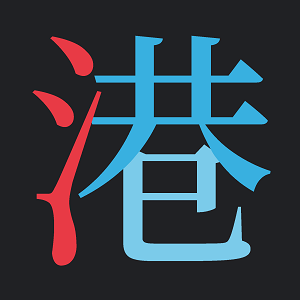港
부수: 氵
획수: 12획
港 means port/harbour.

港 = 氵 + 巷
X = semantic + semantic/phonetic
• 氵 is a component form of 水. It depicts flowing water and represents the meaning ‘water’.
• 巷 represents ‘a small road’ or ‘streets of a settlement’ (explained below).
Combined, 港 originally meant ‘a forking river’.
Evolution:
港 = a forking river ➔ bay ➔ harbour
巷 = 共 + 巳
• 共 originally depicted two hands making an offering. This is associated with the meaning ‘to supply’ (as in suppling goods) and came to mean ‘streets’ (supply lines).
• 巳 is a distortion of 邑 meaning ‘city’. It does not mean ‘snake’.
Combined, 巷 represents ‘a small road’ or ‘streets of a settlement’.
Some scholars suggest 巷 represents ‘forking road’ and therefore 港 represents ‘forking river (delta)’ and thus ‘harbour’. Others suggest it represents water lanes for boats and thus ‘harbour’.
Mnemonic
Consider 巷 as representing supply 共 lines for a city 邑. A city’s harbour 港 is where goods and supplies arrive from the sea 氵.
Vocab
| 空港 | 공항 | airport |
| 港口 | 항구 | port; harbour |
| 港灣 | 항만 | port; harbour |
| 港都 | 항도 | port city |
| 河港 | 하항 | river port |
| 軍港 | 군항 | naval port |
| 母港 | 모항 | home port |
| 入港 | 입항 | port entry |
| 寄港 | 기항 | to stop at a port |
| 貿易港 | 무역항 | trade port |
| 外航船 | 외항선 | outward-going ship |
| 高潮港 | 고조항 | tidal harbour |
| 寄港地 | 기항지 | port of call |
Other resources
Image searches
Google
Bing
Yahoo Japan
Baidu (click 图片)
Sogou
Pinterest
Flickr
CJKV
CJKV Dict
Wikitionary
Unihan Database
Korean
Chinese
Written Chinese
Arch Chinese
ZDic
CC-Canto
Chinese Text Project
The Chinese University of Hong Kong (etymology)
Chinese Boost
Japanese
Takoboto
Jisho
JLearn.net
Sakura
The Kanji Map
Sentence Search
Immersion Kit
Vietnamese
Bibliography
— Daum 사전, [s.v. 港].
— Grant, B.K. (1982). A Guide To Korean Characters: Reading and Writing Hangul and Hanja, [s.v. 1122]. Seoul: Hollym.
— Outlier Dictionary of Chinese Characters, [s.v. 港, 氵, 巷, 共, 巳].
— Seely, C., Henshall, K.G., & Fan, J. (2016). The Complete Guide to Japanese Kanji: Remembering and Understanding the 2,136 Standard Japanese Characters, [s.v. 296]. Singapore: Tuttle Publishing.